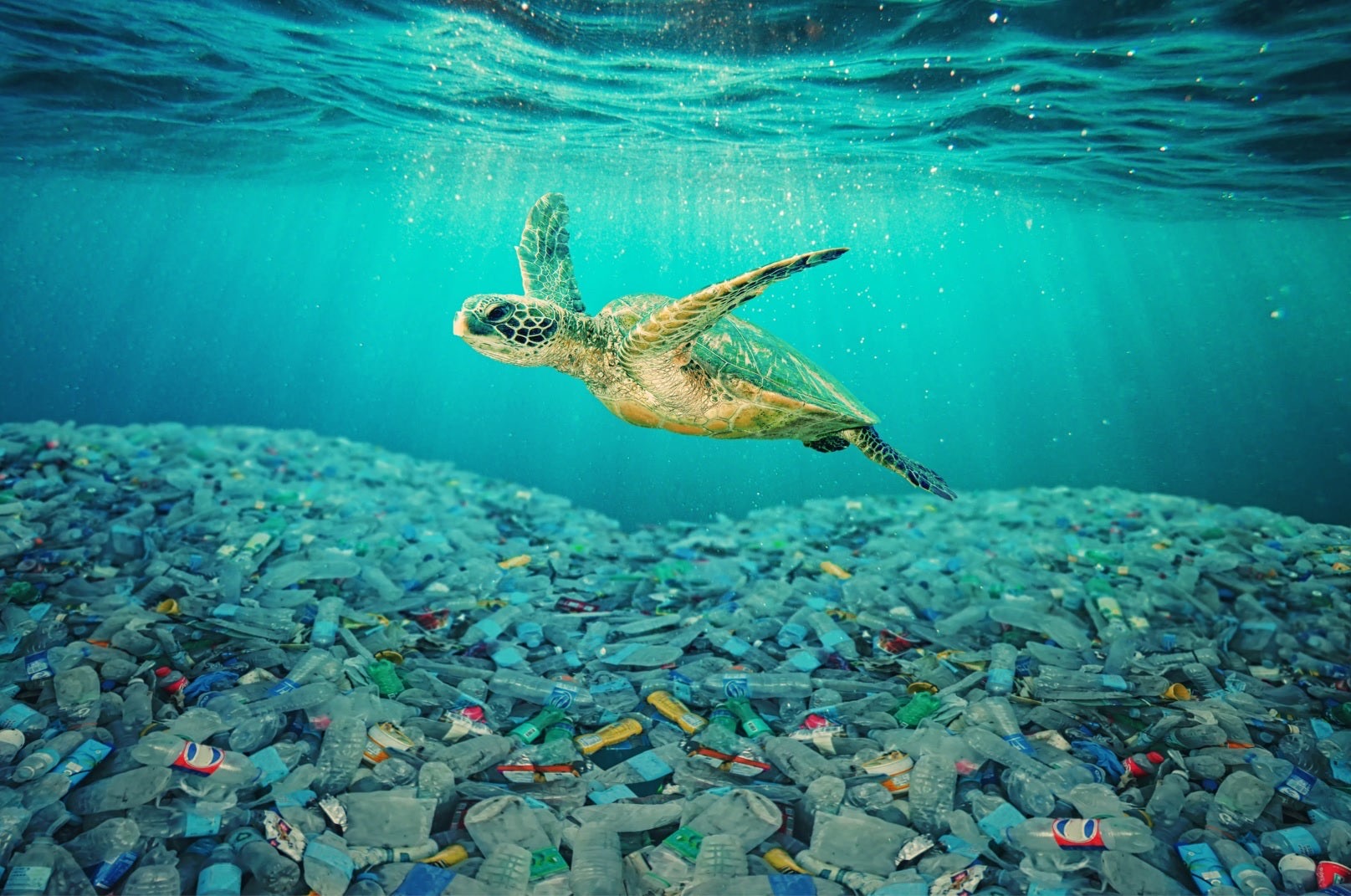In the vast expanse of our oceans there is a hidden crisis that threatens the very fabric of marine life – plastic pollution. The repercussions are terrible, echoing in the depths and affecting every creature beneath the waves, as well as a public health issue.
Yes, the very cause of plastic waste can be indirectly affected by the harm it brings to the seas. This blog post analyzes the profound impact of plastic on marine ecosystems and indicates how harmful it can be to human health.
The Silent Threat Below the Surface
Beneath the tranquil surface of our oceans, a growing menace lurks. Discarded plastic, from the microscopic to the massive, infiltrates every corner, disrupting the delicate balance of marine ecosystems. This toxic invasion poses a direct threat to the myriad species that call the ocean home.
Marine Lives in Peril
From majestic whales to microscopic plankton, no creature is spared from the insidious effects of plastic pollution. Marine life, often mistaking plastic debris for food, faces the peril of ingestion and entanglement. The consequences ripple through the food chain, affecting species from the smallest to the largest, ultimately impacting human communities reliant on marine resources.
Unraveling the Web of Consequences
Plastic pollution is not just a visible eyesore; it’s a complex web of consequences. As plastics break down into smaller particles, they introduce toxic chemicals into the water, further compromising the health of marine environments. Coral reefs, vital to ocean biodiversity, face degradation, and the delicate balance of underwater ecosystems is thrown into disarray.
The impact of marine litter on human health is significant and multifaceted. Here are some of the key ways it affects human health:
1. Food Contamination
- Microplastics: Trash in the ocean, especially plastic, breaks down into microplastics, which are ingested by fish and other marine life. When humans consume these contaminated marine species, microplastics can enter the human food chain, potentially causing long-term health issues such as toxicity and immune system disruption.
- Bioaccumulation of Toxins: Hazardous substances present in marine litter, such as heavy metals and industrial chemicals, can be absorbed by marine organisms. These toxins accumulate in the tissues of these animals and can lead to poisoning, neurological issues, and liver or kidney damage when humans consume them.
2. Infectious Diseases
- Pathogens in Trash: Organic waste and other debris dumped into the sea may carry pathogens (bacteria, viruses, etc.) that contaminate the water and seafood. Consuming contaminated seafood or coming into contact with polluted water can lead to infectious diseases like gastroenteritis, hepatitis A, and cholera.
- Bacterial Proliferation: The accumulation of trash in the oceans can create environments conducive to the growth of harmful bacteria, such as Vibrio species, which can cause severe infections in humans, particularly those with compromised immune systems.
3. Economic and Social Well-being Impacts
- Fishing and Local Economies: Marine contamination can negatively impact the fishing industry, reducing the availability of safe seafood and affecting local economies. This can lead to food security issues, particularly in coastal communities that rely on the ocean for their livelihood.
- Tourism and Recreation: Beaches and coastal tourist areas polluted with marine litter can lose their recreational value, impacting tourism and local economies, while also exposing visitors to health risks like infections and allergic reactions.
4. Indirect Public Health Effects
- Ecosystem Alteration: The destruction of marine habitats caused by litter can lead to biodiversity loss, which indirectly affects human health. For example, the destruction of coral reefs and mangroves can reduce natural protection against storms and floods, increasing the risk of natural disasters for coastal communities.
- Climate Change: Ocean pollution contributes to the degradation of marine ecosystems that play a crucial role in regulating the global climate. The destruction of these ecosystems can exacerbate climate change, leading to extreme weather events that directly affect human health and well-being.
5. Exposure to Harmful Chemicals
- Hazardous Chemicals: Many types of marine litter contain harmful chemicals, such as pesticides and persistent organic pollutants (POPs), which can be released into the marine environment and eventually enter the human food chain. These chemicals can cause a range of health problems, including cancer, hormonal disorders, and reproductive issues.
A Unified Call to Action
The time to act is now. Governments, industries, and individuals must unite in a concerted effort to reverse the tide of plastic pollution. Reducing single-use plastics, implementing effective waste management practices, and embracing sustainable alternatives are crucial steps.
Empowering Change through Awareness
Education is key to fostering change. By raising awareness about the far-reaching effects of plastic pollution, we empower individuals to make mindful choices. Beach clean-ups, recycling initiatives, and supporting eco-friendly practices can collectively make a substantial impact.
Conclusion on the effects of marine litter on the ecosystem and human health
In summary, marine litter poses a serious threat to human health by contaminating food sources, increasing exposure to toxic substances and pathogens, and contributing to environmental degradation that affects overall well-being. Reducing marine pollution is essential to protecting Habits and preserving marine ecosystems.
The impact of plastic pollution on marine ecosystems is not a distant problem; it’s a crisis demanding immediate attention. Through collective action, we have the power to steer the course towards a cleaner, healthier ocean. Let this be a rallying call – a call to save our oceans and preserve their beauty and vitality for generations to come. Together, we can make waves of change.
